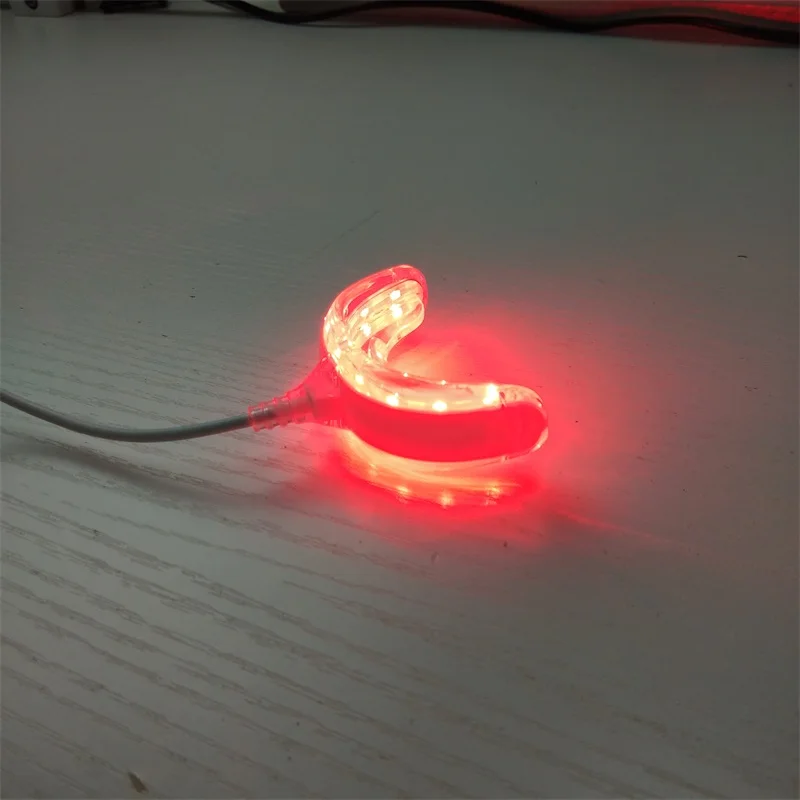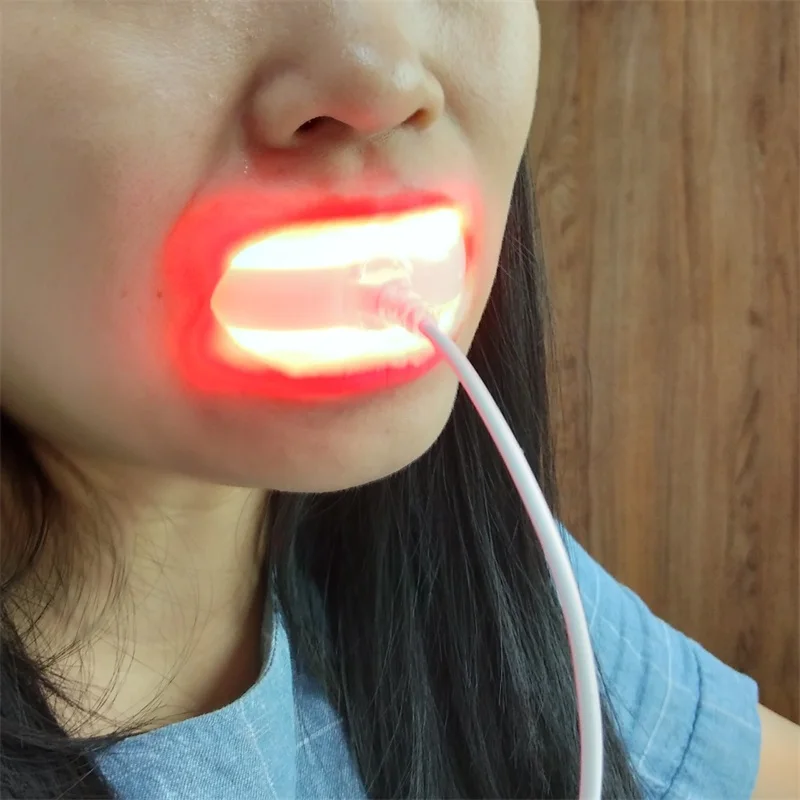Cashdust
Tooth Sores Cure Reliever Gingivitis Therapy LED Red Light Therapentic Device
Tooth Sores Cure Reliever Gingivitis Therapy LED Red Light Therapentic Device
Couldn't load pickup availability
SPECIFICATIONS
Brand Name: COZING
Application: Face
Product name: DENTAL CARE LIGHT THERAPY DEVICES
Model Number:: COZING-USBO3
Application: Bactericidal and antl-inflammation
Advantage: easy to usage,food grade silicon gel
Size: Portable , can be connect to any USB ports
Feature: Physical therapy rehabilitation
Treatment efficiency: positive clinical trial proved
How many ports is supported?: 3 in 1
Certificate: CE
Max. output: 3200mW
After-sale Service: Online technical support
Choice: yes
semi_Choice: yes
COZING-USBT symptoms:
1.Sensitive teeth (dentin hypersensitivity)
2.Tooth & bone damage
3.Bacteria counts (tooth decay causing bacteria)
4.Oral thrush/candidiasis
5.Gum inflammation & oral wounds in soft tissue
6.Recovery from surgery (gums and jaw bones)
7.Relief toothache
8.Eliminate inflammation

What is the technical parameter of the COZING-USBT?
Wavelength:625NM±20
Diode: LED
Max. Output power: 3200mW
Material : oral part is medical grade silicone gel .
Jack: 3 in 1
What is the advantage of the COZING-USBT?
1. Portable
2. Compact
3. It can connect to the mobile (3 jack as the options)
4. Plug in, then the led will output automatically.
5. Photodynamic bactericidal therapyLed light therapy, no adverse reactions.
6. Bactericidal and antl-inflammation , physical therapy rehab.
no long-term medication is required, and it is not affected by patient compliance; short time, quick effect, little pain

Tooth sensitivity: can red light help?
Having a sensitive tooth is stressful and directly reduces quality of life – the afflicted person is no longer able to enjoy things like ice cream & coffee. Even just breathing through the mouth can cause pain. Most people afflicted have cold sensitivity, but a minority have hot sensitivity which is usually more serious.
There are dozens of studies on treating sensitive teeth (a.k.a. dentin hypersensitivity) with red and infrared light, with interesting results. The reason researchers were originally interested in this is because unlike the enamel layer of teeth, the dentin layer actually regenerates throughout life via a process called dentinogenesis. Some believe that red light has potential to improve both the speed and effectiveness of this process, working to improve metabolism in odontoblasts – the cells in teeth responsible for dentinogenesis.
Toothache: red light comparable to regular painkillers?
1.Red light therapy is well studied for pain problems. This is true for teeth, just as much as anywhere else in the body. In fact, dentists use low level lasers in clinics for this exact purpose.
2.The red light doesn’t just help with the symptoms of pain, saying that it actually helps on various levels to treat the cause (as already mentioned – potentially killing bacteria & rebuilding teeth, etc.).

WHAT IS RED LIGHT THERAPY?
1.Red light therapy, also called photobiomodulation or low-level light therapy, is the process of diffusing concentrated wavelengths of natural light into the skin to treat various ailments and conditions and to otherwise improve the functioning of the cells.
2.The treatment typically uses light-emitting diodes (LED) to safely deliver red and near-infrared (NIR) light deep into the skin to the cells, where it triggers a biochemical reaction that allows the mitochondria to use oxygen more efficiently to produce adenosine triphosphate (ATP).
3.ATP is a molecule that shuttles energy within the body’s cells. Also known as the body’s energy currency, it’s responsible for all cellular activity. And for various reasons - age, illness, poor lifestyle habits - ATP production can wane, which can have deleterious effects on any number of organs and tissues - including teeth and gums.
One of the well-documented effects of increased ATP production is improved blood circulation. This creates a positive cycle in which increased blood flow allows more oxygen to reach the cells. Mitochondria, having easier access to oxygen, is then able to increase ATP production even further, and so on.
3. Red light therapy also triggers a reaction called hormesis. The term is derived from the Greek word hormàein, meaning “to excite” or “to set in motion”, and it’s pretty spot on. The theory is that small doses of toxins can have a beneficial effect on the body. Research shows that red light therapy exerts temporary mild oxidative stress on the mitochondria which sends a signal to the cells to activate its defense systems. This anti-inflammatory and antioxidant response ultimately strengthens your cells, making them all the more capable of producing energy.
Package
Main unit with the USB wire*1+manual book*1+gift box*1
Share












